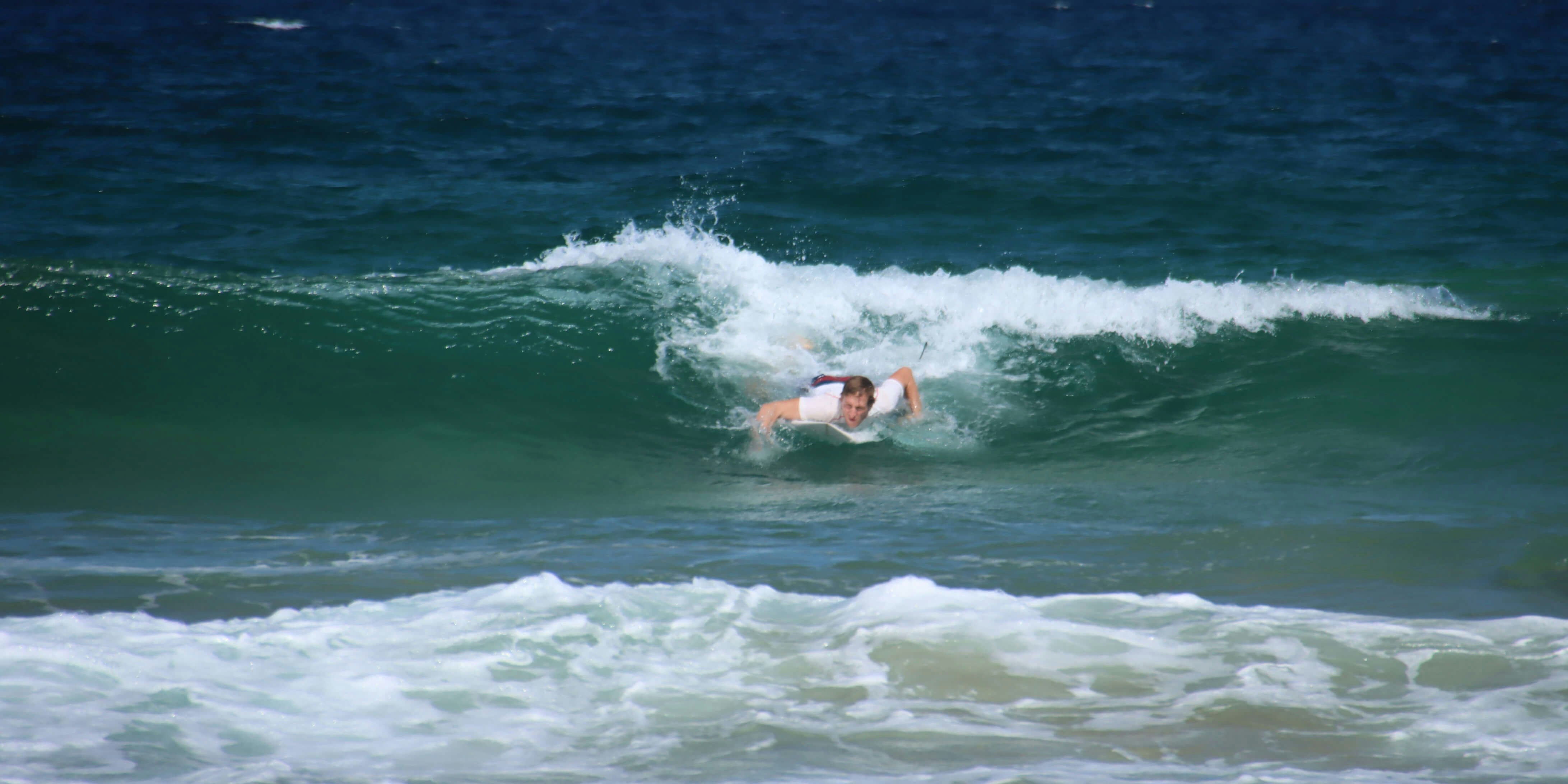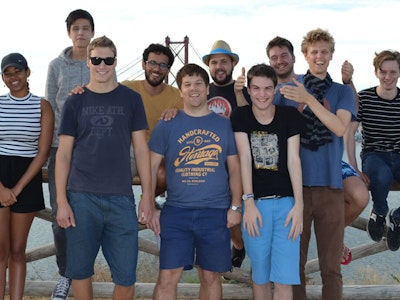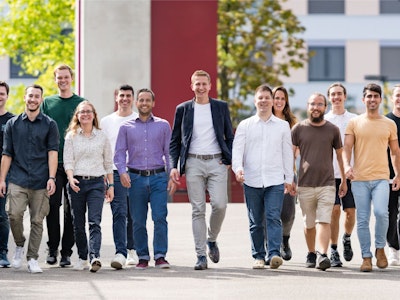Are you ready for an adventure? In this blog post, I'm taking you on a journey out of my comfort zone. On an adventure to relocate my home and family to Australia for a few months. And stepping out of the company.
Yes - you heard me right: I'm going away.
How free is free?
Freedom is essential for me. So essential, in fact, that during my studies I had no specific career aspirations other than to set up my own company. Many years later, I soberly realised that I was probably the least free person at Renuo. Is it really the case that as an entrepreneur you are dedicated to your company and can no longer go on longer trips, for example? Disbelieving that this really is an either-or decision, I wanted to prove the opposite.
When, if not now?
As a teenager, I spent a year in Australia in 2005/2006 as part of an exchange programme. The rich flora and fauna, the fascinating culture and, above all, the open-minded people kept me hooked. I promised myself I would come back for longer than just a few weeks at some point. Easier said than done: after returning home from Australia, I first had to join the military, then study for a Bachelor's and Master's degree, set up a company and finally start a family. Or to put it the other way round: it was simply never the right time to leave. Until suddenly an exciting window opened up: my children were not yet at school and Renuo seemed to have outgrown its infancy. After more than 15 years of waiting, it was clear to me that it was time to act. Maybe not a "now or never". But at least a "when, if not now?".
How do I approach this?
A longer absence, especially in my executive role, needs to be well planned. Especially if - as in our case - no specific return date has yet been set.
But how and where to start?
- Initiate partners: At our annual partner retreats, we always start with a reflection on personal plans and wishes. Thanks to this open atmosphere, my two partners, Josua Schmid and Alessandro Rodi, were already aware of my plans in advance, even before I had concretised them. Thanks to the introduction of our Growth Atelier, this wish was also known internally. I am glad that we have this transparency at Renuo - it helped me in my endeavour. So I informed my two partners of my specific intention about a year and a half in advance and started the actual planning once they had agreed.
- Raising awareness: My starting point was a document in which I documented all my tasks. Many of my tasks are irregular, so it took me a good six months to compile them. This experience not only proved to be an important foundation, but also a fascinating realisation about how I spend my time. I asked myself the question: "What do I actually do all day?" In addition to very specific tasks such as "carrying out 1-1s", I also learnt about less tangible aspects such as the importance of presence. In the end, I even ranked the latter first and most important. With regard to a smooth handover, I felt it was very important that such a list also included intangible tasks.
- Inform the team and customers: Internally, I revealed my specific plan around three months before I left. I would have liked to have done this earlier, but due to two personnel changes I didn't want to put any additional strain on the company. In a personal dialogue, I agreed with everyone involved that I would take on my tasks and distributed around 85% of my duties. Our customers were then informed - about two months before my departure. I was quite surprised (and very grateful) to receive only positive and encouraging feedback, both internally and from our customers.
- The book "How to Run Away From Home: And Bring Your Family With You" by Adam Dailey also helped me during my preparations. It's a great account of the experiences of an entrepreneur who realised the project under much more difficult circumstances and for a much longer period of time.
What does it mean in concrete terms?
When I arrived in Australia, I mainly focussed on conducting two-week bilateral meetings and financial controlling aspects. This helped me not to have to let go completely. And Renuo benefited from not having to completely do without my knowledge and experience. My full-time workload was reduced to 23%. Thanks to clearly defined responsibilities and effective communication (both internally and with customers), this worked out without any problems. My plan worked!
As great as our family adventure was, it also brought with it many challenges. I find the vast majority of points difficult to improve, even with hindsight, as they are simply part of this travel setting. The main thing is to develop the right expectations.
- Working atmosphere: I often worked frequently and for short periods. Compared to more concentrated, longer periods, I found this demotivating. In addition, there were aggravating circumstances such as poor (or no) internet, children in the immediate vicinity and poor (or no) office furniture. n view of the fact that a trip is just a trip, it probably can't be optimised. However, I have learnt to appreciate how important a good working environment is.
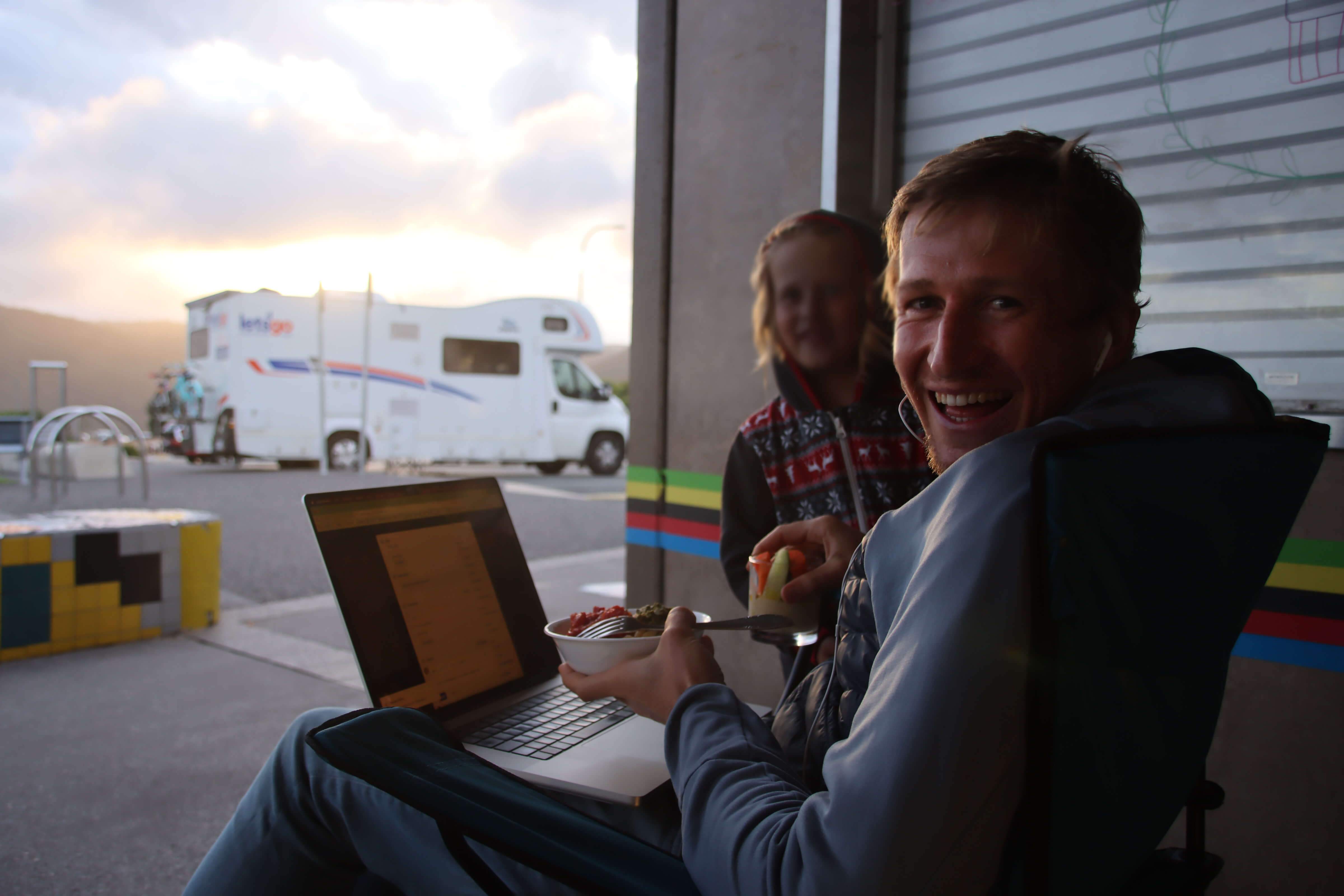
Working from outdoors
- Communication: The irregular working pattern presented me with challenges in communicating with my family and also with the company when it came to deciding when I wanted or had to work. It felt like I was always working and yet somehow never. Looking back, I would try to improve communication by defining clear time slots.
- Time difference: Due to the time difference - it was between 7-10 hours - I often worked late into the night. As a result, the following day was often tough, as family life continued as normal and I didn't want to "oversleep" during the day. This double burden challenged me, but in the context of the trip it was probably to be expected; it's more about expectations.
- Physical and mental distance: The physical distance also meant mental distance. On the one hand, this is part of the plan and even desirable. On the other hand, it makes certain tasks very difficult: I found it difficult to come to terms with Renuo's goals for 2024 because I simply felt too far away. This realisation reinforces my commitment to the strategic direction of not doing nearshore or offshore. I doubt that you can maintain the necessary kind of commitment and connection over such great distances.
What remains?
My family time-out not only proved to me that you can also be absent for longer as an entrepreneur. It has also enriched our company and my mind:
- Understanding: handing over various tasks to other people increases mutual understanding and appreciation for each other. This is particularly true in my management role, where most things are done alone.
- The bus factor: My absence forced us to tackle my bus factor very concretely and effectively. As a company, we are now broader and more resilient than before.
- The value of time: The change from having almost no time to having all the time in the world was exciting. In my opinion, the value of time depends on synchronising it with others: I enjoyed my time off mainly because it was together with the family. And working was enriching when I was working at the same time as my team. I feel encouraged not to continue full-remote, nearshoring or offshoring.
- About life: My time away reminded me that life is about much more than work. It's about relationships, conversations, connections. Australians are perfect role models for this because they are much more likely to take the necessary time and leisure for interpersonal relationships. At the same time, I would like to emphasise that a life without work also makes little sense. A person needs work; needs problems. It is what gives a life meaning.
- Back to freedom: after my return, I have more time to work on the company instead of in it.
The time out was a unique and very enriching opportunity for me. I would like to thank my partners, my team and our customers for their support. It would not have been possible without them.
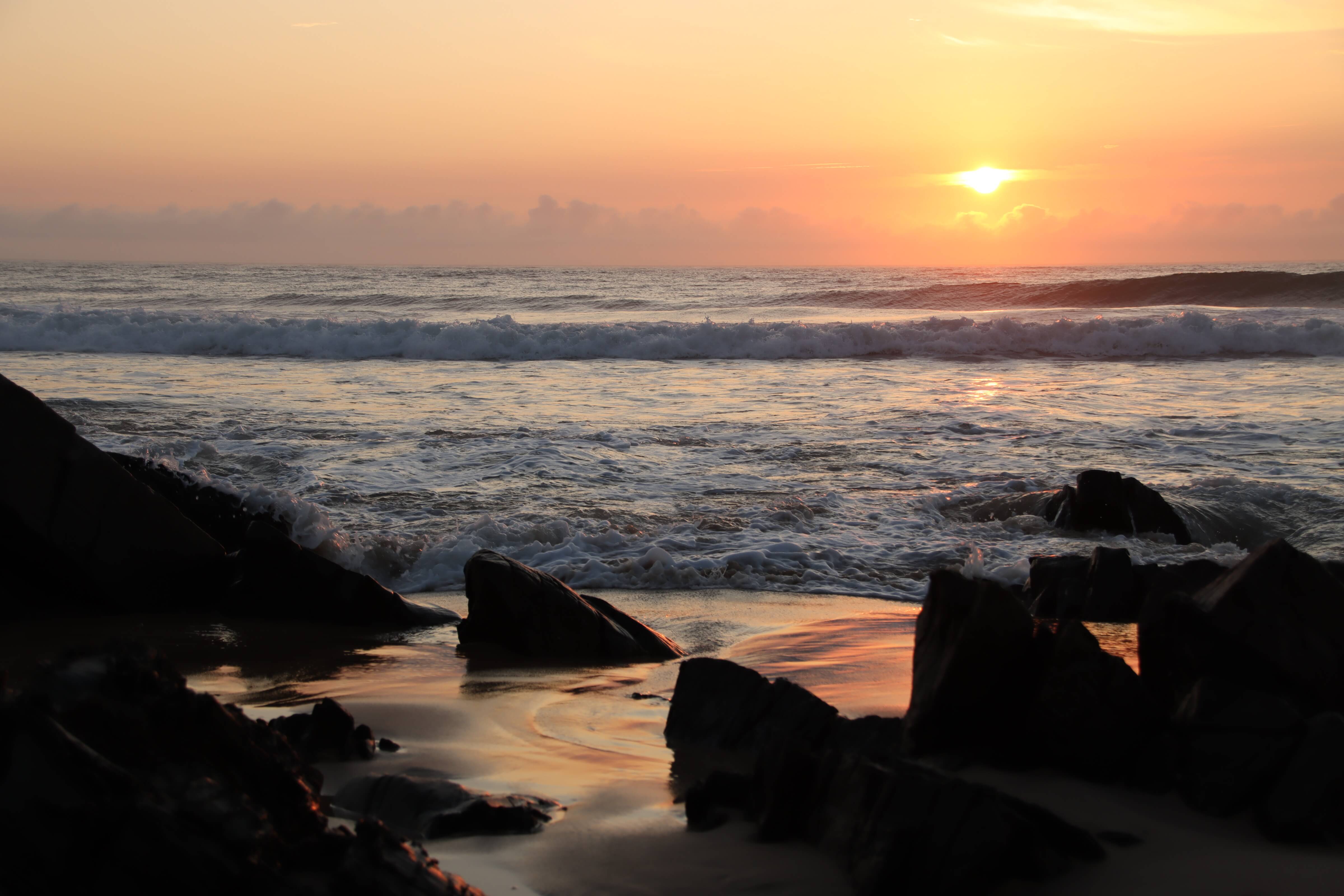
... one of many sunrises during our trip

